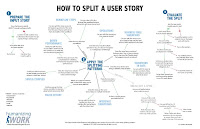ou’re starting a new job at a new company. You don’t know their internal processes or culture yet, and your role may be different from what you’ve done before.
You do have some information from the interview, but the reality of a job often doesn’t match the job description. Even if the interviewer previously held your position, day-to-day tasks are often glossed over in favor of more memorable, less frequent events.
Build Your Own Checklist
When you feel like you know nothing, it’s hard to make a plan. Every company is different, right? True—but you do have past experience to draw on.
If you’ve ever joined a new team, learned a new skill, or started a new activity, you’ve seen patterns emerge. Those patterns can form the basis of your personal onboarding checklist.
Here’s my checklist to get you started:
- Know your go-to people – Who can help you when you’re stuck?
- Map your resources – What tools, documents, and systems do you have access to?
- Spot the risks early – What can go wrong? How will you know, and what’s your first response?
- Understand communication norms – Email, chat, meetings—what’s preferred?
- Notice process pain points – What’s broken, and what’s been patched over for too long?
- Identify neglected work – Is there an unowned responsibility quietly gathering dust?
Remember: your weakness is that you know nothing—and your strength is also that you know nothing. A fresh perspective can spot issues veterans overlook.
It is common to feel overwhelmed. If you’re unsure how to ask a question, jot down your confusion. Then, once someone’s explained, revisit that spot and ask for clarity.
Make the Most of Onboarding
Document your onboarding experience—especially what’s missing or wrong. It will help the next person in your role and may highlight gaps for your team.
When reviewing tutorials or documentation:
-
Follow them step-by-step.
Note unclear instructions, unnecessary detail, or missing steps.
-
Suggest simplifying overly long guides by focusing on defaults for common cases.
Whenever possible, reframe them for the intended user: explain the intent, group by use case, and keep it simple.
Communicate Effectively
Make Early, Smart Suggestions
It’s natural to wait before making suggestions, but don’t wait too long—momentum matters. The first 90 days set the tone for your role.
Look for:
-
Obvious gaps – Missing processes, outdated tools, unassigned work.
-
Avoided problems – Pain points that no one wants to own.
-
Low-bar opportunities – When a solution is bad or nonexistent, you don’t need deep expertise to make an impact.
Some of my biggest wins came from tackling tasks outside my skill set—because no one else wanted to touch them. If you approach them with curiosity, persistence, and a willingness to learn, you can quickly add value.
Even small fixes to frustrating workflows can dramatically improve team morale and productivity.
Final Thought
Your first weeks aren’t just about learning the ropes—they’re a unique chance to see with fresh eyes. Notice what’s confusing, inefficient, or broken before you become used to it.
By combining curiosity with action, you can contribute meaningfully while still finding your feet.
Related Posts
- Imposter Syndrome (Part 1): Reasons and Causes
- Imposter Syndrome (Part 2): Pros and Cons
- Team Building Exercises
- Making Work Actually Flow
More Information
Books
Crucial Conversations: Tools for Talking When Stakes are High by Kerry Patterson, Stephen R. Covey, Joseph Grenny, Ron McMillan, Al Switzler
Practical techniques for staying calm, respectful, and effective during emotionally charged feedback moments.



























